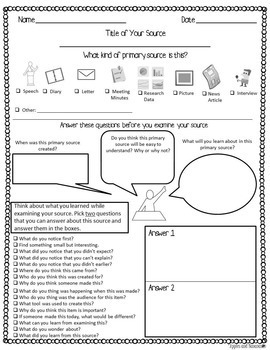
Recording just the cost of those supplies with the cash method might give you an inaccurate picture of how much you are — or should be — spending on supplies. To understand the difference between these two methods, take this example. You ordered the parts in January, and the manufacturer sent you an invoice that same month. However, you don’t actually pay the fee until you’ve received the parts, in February. Take the time to organize your records, whether that means buying a filing cabinet or breaking out the label maker. Saving your records in the cloud also ensures that they’re easily accessible in a digital format from any device.
Assign Transactions to Specific Accounts

The same is true for revenue, where you’ll have to factor in price increases and the number of customers marketing will generate each year. Sitting down with your accountant or using accounting software are the best ways to develop realistic financial projections. You can buy stand-alone inventory management software to help you with this task, or many accounting softwares integrate with inventory management tools. Take some time to set up an invoicing system, including tracking the work completion, deciding the frequency of invoicing, defining payment methods and creating professional-looking invoices. Develop a method of handling your data, actively managing your cash flow and reviewing your monthly and bank statement regularly.
Balance your books
- Think about how much you currently owe, how much customers owe you, when payments need to be made or are expected, and how much VAT you’re liable for.
- Bookkeeping is how businesses, entrepreneurs, and decision-makers monitor a company’s overall financial health and activity.
- You can connect our accounting software to your business bank account and import your transactions, reducing the amount of manual work you have to do and lowering the risk of making human mistakes.
- For example, a loan would go under liabilities since you’ll have to pay it back later.
As a business owner, bookkeeping might not rank high on your list of priorities. However, maintaining accurate financial records is key to your business’s success. This type of account is designed for everyday use and allows businesses to make unlimited social roles and social norms deposits and withdrawals. Typically, checking accounts also come with a debit card for easy access to funds. Even if you aren’t planning on growing any time soon, you need to have a sense of how much money is coming in versus what is going out.

You need it to do your taxes
If your business requires the collection of sales tax, you may be required to submit accurate quarterly payments, depending on your state’s requirements. When setting up a bookkeeping or accounting system for your small business, you first need to decide between manual record keeping, using business https://www.quickbooks-payroll.org/ accounting software, or hiring an outside firm. Online accounting software can help you make sense of your financial reports, review your budget, and prepare for taxes. Don’t forget to visit the QuickBooks bookkeeping hub where you can find additional helpful information and definitions.
Small-business owners know that smart money management is one of the most crucial aspects of success, regardless of how much revenue a company brings in. How you keep your books can make or break your business, because those accounting records are the only true representation of your profits and losses. Recording can be pretty time-consuming (especially if you’ve been putting it off), which is where accounting https://www.simple-accounting.org/how-to-start-your-own-bookkeeping-business-by-lisa/ software like Wave’s can help. You can connect our accounting software to your business bank account and import your transactions, reducing the amount of manual work you have to do and lowering the risk of making human mistakes. Ideally, you also want to find a bookkeeper or accounting firm that has experience in your industry. Just as reporting standards vary regionally, they also vary by industry.
The responsibilities handled by a service will depend on the provider, so be sure to discuss the scope of work and compare options to find the right fit. We believe everyone should be able to make financial decisions with confidence. Darren Fell, managing director of Crunch Accounting, discusses what costs can be claimed as a small business. When you first get started in business, looking after the financials can seem a bit intimidating. It’s also a good idea to ask how you can support them in pushing it over the line – whether that’s allowing them to pay a different way or splitting payments into smaller chunks. Finding the right support for your business is only half the battle.
Think about how much you currently owe, how much customers owe you, when payments need to be made or are expected, and how much VAT you’re liable for. There’s no getting away from it – if you run a small business, you’ve got to run its bookkeeping too. Sometimes, this can seem like an overwhelming and lengthy job, especially if you’re not 100 per cent sure what you’re doing. You know what’s even better than using software to automate your bookkeeping?
A bookkeeper records all of the financial transactions for a business, while an accountant’s job is to interpret and analyze the data recorded by the bookkeeper. As a small-business owner, individual transactions matter — but so do your overall financial trends. When you track and categorize your expenses and revenue streams, you and your financial advisors will be able to identify different areas of strength or growth based on historical data. It’s a good idea to sit down from time to time and review these trends from a high-level perspective. “Founders are typically smart, and [handling my own bookkeeping] is what I would do too,” she says. Eversmann encourages business owners to follow IRS guidelines on tracking transactions and to save all receipts for seven years.
By paying diligent attention to the process, you’re not just creating a manual; you’re crafting a legacy of diligent financial stewardship. Remember, with detailed policies come transparent operations, and with transparent operations, trust. Once you start getting your first clients, it’s important to focus on customer satisfaction.
Our partners cannot pay us to guarantee favorable reviews of their products or services. If you stick to these three golden rules, you’ll slash the hours it takes to keep clean books, save yourself a lot of headaches, and keep the cash flowing. No matter what type of business you run, you need to pay tax on whatever money it earns. There are a few different types of tax, each with their own criteria, rules, and processes.

Leave A Comment